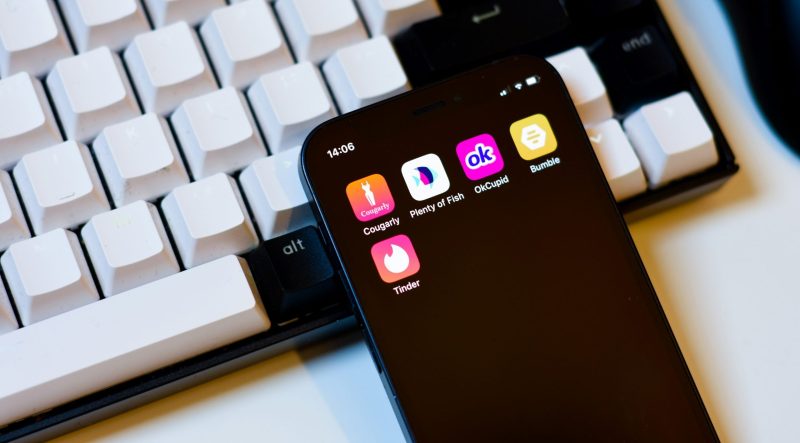On a TV newscast aired Dec 14, 2021, car drivers in Gwinnett and Cobb Counties, Georgia, and Lubbock, Texas, told 11Alive News that they were tracked by Apple AirTag fobs secretly attached to the outside of their vehicles. 11Alive discovered 8 local police reports in Georgia on AirTag stalking crimes during the prior month. The news program interviewed private investigator Eric Echols who stated it is legal to put a GPS device on the outside of someone else’s vehicle as long as it is in a public setting. The local police and laws have not been able to get in front of this problem and slow its spread.
Brooks Nader, a Sports Illustrated Swimsuit Model, told a reporter, “Check your belongings. Check your surroundings. It was the scariest, scariest moment ever,” on NBC News on Jan 7, 2022. She told the news that her Apple phone notified her that an AirTag device was following her and she wanted to warn people about this terrifying problem. She later found the device which had been secretly placed in her coat pocket. She is right. People should not have to worry about an AirTag secretly placed in their purses, backpacks, or on their cars which would allow a criminal to track them and discover where they live, work, or the routes they travel.
YouTube has dozens of videos by TV news reports and individuals from around the U.S. about how innocent people are finding AirTags hidden on their trucks or cars, in their purses, or items they carry with them. There are over 100 online articles by news and technology journalists on the growing Apple AirTags stalking problem.
Apple has done a few things to help iPhone and Android users discover rogue AirTags that are following them. However, Apple could do a lot more to enable people to know if an AirTag is tracking them and how to easily disable it if it cannot be quickly found. The company recommends that mobile phone users install an app that allows the person’s iPhone to sound a warning if an AirTag is following them.
This brings up a point that is overlooked by most of these reports. Your location data, no matter how it is collected, is your personal data. You should have the power to own it, protect it, and control it as you do with your car, your home, and your bank account. Your personal data is an asset. It has a real tangible value and the fact that corporations want to gather and sell your data and criminals want to steal your data is proof. The technology of digitizing everything into data and the desire for convenience has outpaced the laws and the culture respecting personal privacy. At the moment your location data and most of your personal digital data have been commoditized, legally gathered, sold, or stolen. Currently, people have not woken up to the need to own and control the use of their data. Instead, they use limited defensive measures or no measures at all to prevent the gathering and misuse of their personal data by others.
Stalking is a growing problem. The CDC reports that historically, approximately 1 in 6 women and 1 in 17 men in the U.S. have been stalked during their life. The Internet has made this problem worse. A September 2021 Pew Research Center survey of U.S. adults discovered that 41% of Americans have personally experienced some form of online harassment including stalking. Stalking impacts people early in life. About 54% of female victims and 41% of male victims were stalked before they reached the age of 25 years.
Under U.S. Federal Law (Code 18 USC § 2261A.), stalking is a felony. Simply stated, stalking is where one:
- places another person in reasonable fear of death or serious bodily injury or to that person’s, family members, partner, poets, or emotional support animals
- causes, attempts to cause, great emotional distress to another person, or
- acts with the intent to kill, injure, harass, intimidate, or do surveillance on a person
To violate federal stalking law must either have traveled across state lines, tribal lands, U.S. waterways, or engage in interstate commerce while stalking. Here interstate commerce includes using the telephone, the U.S. postal service, the Internet, or any electronic communications system across state lines. Stalking is not stealing. But if criminals do surveillance on a person to steal his car, steal from his home, and it causes him great emotional distress those criminals may be charged with stalking.
The federal penalty for a convicted stalker is a prison term of up to five years, a fine of up to $250,000, or both. (18 USC § § 2261, 3571.) If the victim is physically injured or dies from the process of stalking the penalty may be a life sentence in prison.
Stalking that does not take place across state lines can be prosecuted by each states’ laws where the definitions and penalties for stalking may differ from federal statutes.
To address the AirTag stalking problem for Android phone users, Apple created the Tracker Detect app. On the Google Play Store, this app has only 2.2 out of 5 stars. The app does not “automatically detect” the presence of an AirTag but requires users to manually scan cars, purses, or other objects for illegally placed AirTags. This takes time to walk around a vehicle and search for a signal, wait for a response from the Tracker Detect app and if the signal is weak, keep moving around the vehicle to locate a stronger signal. Who would bother to do that every day? Not many people would go through that hassle. It is even less likely that someone would manually scan their vehicle, purse, backpack, or baggage several times a day when they drive all over the city doing a lot of personal and business errands. As of July 2021, AirTags will beep at 60 decibels when separated from an owner’s iPhone, at a random time between 8 and 24 hours. However, if a person is away from their vehicle or the purse when a hidden AirTags beeps, the intended victim will not hear it.
With the help of Apple AirTags, a criminal has plenty of time to stalk a person and learn where they work or live, or to track a vehicle to steal it. Why does this give a criminal ample time? Because at the earliest it will take 8 to 24 hours for an AirTag separated from its owner to sound off its beep.
Apple is not the first company to create an inexpensive tracking device, but Apple and Amazon developed the cheapest tracking devices making it easy for people to locate lost things. The previous articles published last August and October “Should you opt-out of Amazon Sidewalk and Apple Find My?” and “Expert Tips To Make Your Smart Home Safe From Hackers,” cover in-depth the problems of the mesh network created by Apple and Amazon to connect IoT (Internet of Things) devices. The articles also provide expert recommendations on what people can do to overcome the security weaknesses of home IoT devices.
Apple has not made it a priority to heavily publicize the problem of criminals using AirTags to stalk people, their cars, etc. Apple could actively work with all the other companies such as Amazon (Tile) Tile, Chipolo, and Samsung, which also sell tracking fobs. Since none of these other companies have created and released an app or device to help people discover if these tracking fobs are covertly tracking them, people have to purchase anti-spy devices to do the task.
Online discussion forums and article comment sections are full of complaints such as inexpensive tracking devices should not be easily purchased by the average person. However, the widespread use of IoT technology which easily connects devices of all types to the Internet, and the lure of convenience to use these devices created this fast-growing problem of illegal data tracking and stalking. In addition, much more sophisticated tracking devices were on the market before Apple AirTags and Amazon Tiles hit the market. Some of these tracking devices are small, inexpensive, and are far more effective location trackers than Airtags and Tiles since they do not depend on the mesh Wi-Fi system used by Amazon and Apple. Instead, these sophisticated devices use GPS (Global Positioning System) which is a universal locational system that uses satellites to pinpoint device locations and help with navigation. Unless a GPS device is in a building, underwater, underground, or in the polar regions, a GPS device signal will likely be detected by satellite. There are trackers on the market that use GPS to track cars, phones, tablets, keys, wallets, luggage, purses, backpacks, cameras, remote controls, elderly people who might wander off, children, toys, etc. Two highly rated and inexpensive trackers are the Spytec GPS GL300 GPS Tracker and the 2022 PrimeTracking GPS Tracker.
Apple AirTag is only 1.26 by 1.26 inches. By comparison, the Amazon Tile Mate, Pro, and Slim tracker models and the above GPS trackers are slightly larger.
Michael Simon, Executive Editor of Macworld recently proposed some good solutions for Apple to further address the AirTag security problem. One was to reduce the time that it takes Apple to alert iPhone users that a covert AirTag is moving with them. The second was for Apple to create an excellent app that would alert an Android phone user that an AirTag was tailing them. The third solution was for Apple to upgrade the AirTag technology so that alerts from covert AirTags happened much more quickly and did not take up to a day to occur.
QuantumPhysics (a commenter who has 5,757 posts on the techspot.com community board) suggested a much more powerful solution that could protect people from being stalked by Apple AirTags. The idea was for Apple to develop an AI program to detect if an AirTag is moving in a stalking pattern and immediately disable the offending AirTag’s FindMy network ID.
The above solution would inconvenience innocent people who have placed an AirTag on an item, child, or pet that they wanted to track, unfortunately. Apple probably would have to update their Terms and Conditions for Apple users to help shield the company from lawsuits by disgruntled AirTag users who lose their wallets, car keys, or whatever, and never find them because their AirTag was disabled. The issue of stalking and illegally tracking people is getting worse and finding an effective solution to this problem will require a serious commitment by Apple.
Consumers love the Apple AirTag. Apple will not say how many AirTags have been sold but they are becoming a common item among Apple users because they are cheap, do a good job in notifying people where their lost items, children, or wandering pets are. However, Apple has neglected to develop apps and protocols that protect non-iPhone and non-Android users who are being stalked by rouge AirTags. The Android Tracker app requires manually scanning and may take a frustratingly long time to locate a secretly hidden AirTag on your car. It takes up to 24 hours for an AirTag to beep once it is separated from its user so stalked people might not discover the AirTag until long after a stalker has followed them home, to work, or anywhere. Professional criminals only need a few minutes to break into most cars and drive them away. AirTags placed under the carriage of a car, under the bumper, or inside the wheelwell will not be discovered by many victims before their car is stolen if a rogue AirTag takes 8 to 24 hours to announce its presence.
Your interests, your choices, your assets, the locations you go to, and everything about you are being digitized. It is a digital world. Yet all of this is your personal data. Others collect it or steal it and use it to make money even if their actions negatively impact you. Your personal data is an asset that others are using. You should have the power to own it, protect it, and control it as you do with any other of your other possessions. The misuse of Apple AirTags is a serious issue, but it is a small symptom of a much larger problem. The use or theft of your location data by others happens because the priority of the current internet technology is to collect and share data immediately. Security and privacy are secondary concerns. This should be reversed. Security and privacy should come first. Then you share or don’t share specific personal data with others that require it on your terms as you see fit. The next two articles will uncover more technologies that track your location, what countermeasures to use, and how to take more control over your personal location data.





